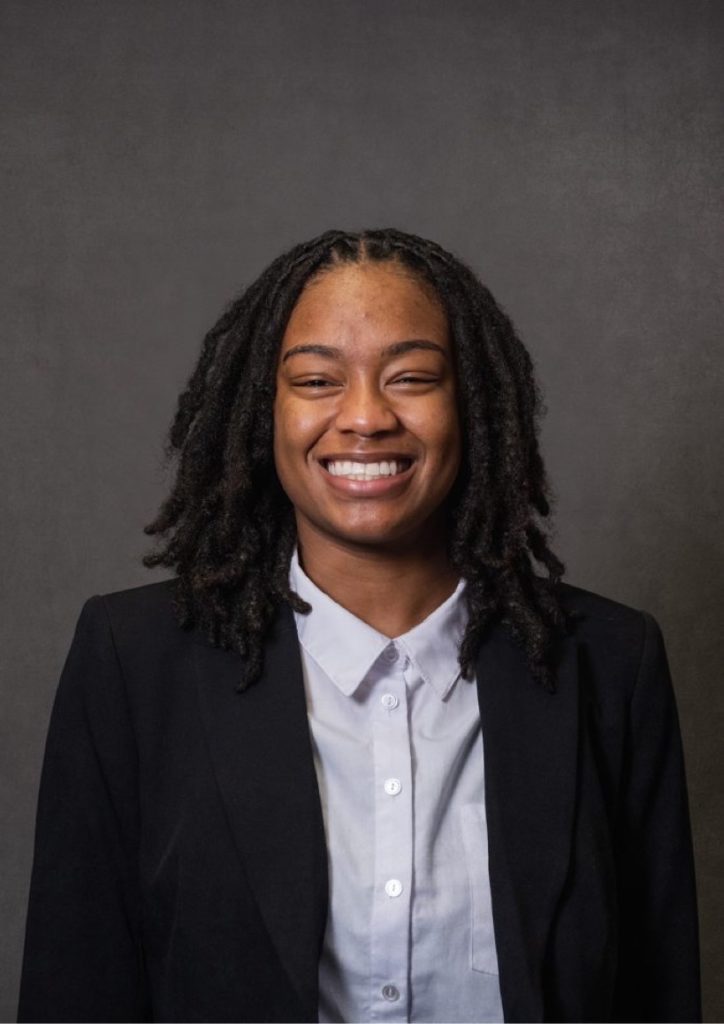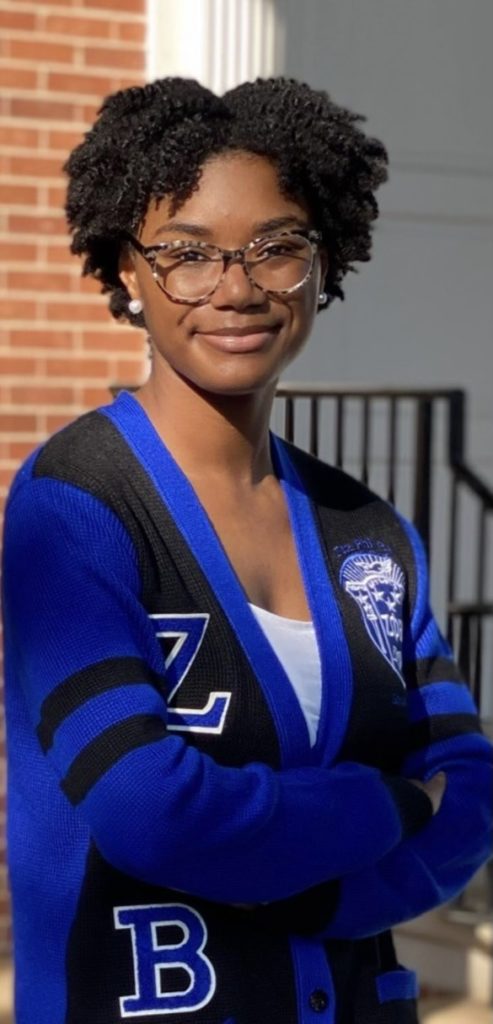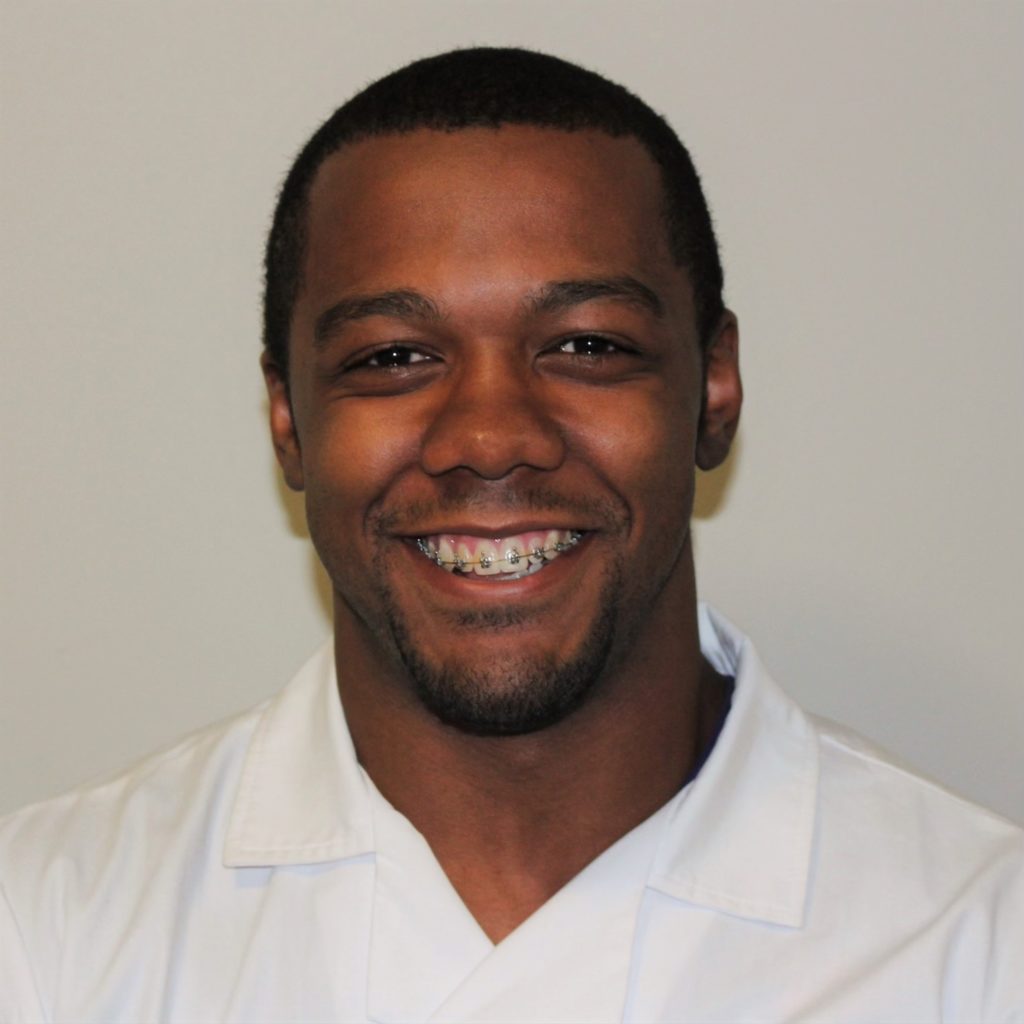Malaysia Barr, Communication ’22
The Minorities in Agriculture, Natural Resources and Related Sciences (MANRRS) program at Clemson University has been a part of the campus for over 25 years. With longevity under its belt, the MANRRS program has enriched the lives of all of those who have been a part of it.
MANRRS is a non-profit organization that originated at Michigan State University in the mid 1980’s. More than 35 years since its inception, the program now has 70 chapters spread out over 50 different universities. These chapters are divided into six geographical regions, with the Clemson University chapter being placed in Region 2 which includes universities located Virginia, North Carolina, South Carolina, Georgia and Florida.
The MANRRS program at Clemson University has been established for over two decades. With a mission to promote academic and professional advancement by empowering minorities, MANRRS at Clemson has sought to live up to the goal to have students of color not only enter, but to succeed in the program.
One such student is junior animal and veterinary science major Evan Boone-Lewis. Boone-Lewis is a native of Rock Hill, South Carolina. He graduated with his associate degree in 2018 from York Technical College. After taking some time off, Boone-Lewis knew that he wanted to get back to school and enrolled at Clemson this spring.

“I knew I wanted to go to Clemson. And I knew I wanted to go because Clemson was a land-grant school, and my dad got his master’s degree here. I remember being 2 years old out here and being at my uncle’s home who lives here,” Boone-Lewis said.
After applying to the university, Boone-Lewis got an invitation to an event that the College of Agriculture, Forestry and Life Sciences was having. It was there he first learned about MANRRS.
“The first person I saw was Dr. (Julian) Nixon. And I’m immediately calm. I had been nervous because I don’t know where I was on campus. Dr. Nixon introduced me to Dr. (Bridgit) Corbett. He gave me his email and after that it was all a wrap,” Boone-Lewis said.
After that first meeting, Boone-Lewis quickly joined MANRRS, where he soon found his niche.
“It’s comforting,” Boone-Lewis said. “It’s low-key like a cookout. It didn’t feel stressful. Like that first meeting I went to, we were cracking jokes while still sticking to the schedule.”
For Boone-Lewis, the comforting atmosphere is not the only thing that keeps him engaged with MANRRS. For him, a special component of the program is the mentorship he’s gained throughout.
“I think outside of the social aspect, I feel like I have mentors and people who are really looking out for me,” Boone-Lewis said. “Through this program, I was able to help one of my friends get her class schedule situation. To know that there is someone who has me on this campus like that, and to know they’d be willing to help a friend, that’s mentorship.”
Evan Boone-lewis
Like Boone-Lewis, Xania Johnson has also found her place in MANRRS.
The junior plant and environmental sciences major joined the program last year during the height of COVID-19.

“I joined MANRRS during the pandemic, so I have no experience with how it was before, but I have been amazed at how much they have been able to do even in these circumstances,” Johnson said.
Johnson serves on the MANRRS executive board and believes that being a part of the board has helped her grow in several ways.
“I currently serve as the secretary for MANRRS which has allowed me to develop leadership skills and to give me a platform to connect with my community. I have also been able to meet new people within the Clemson community. After attending the MANRRS regional conference, I developed a new admiration for my field and was able to connect with others who shared interests with me,” Johnson said.
While Johnson works diligently for MANRRS, she also is involved in many other organizations on campus. She serves as the chapter president of the Mu Psi Chapter of Sigma Gamma Rho Sorority, Inc; she’s a member of A. Bevy Collegiate group, Clemson Prism, and she works as a resident assistant.
With all those organizations in her circle, the Tampa, Florida, native feels that MANNRS stands out to her in very specific ways.
“MANRRS is so important to young, minority students with STEM-related majors especially in spaces such as Clemson. It is often that black students in STEM are in classes where they are one of a handful of students and this can be really intimidating so having a space where they can build connections and network is super important.” Johnson said.
The program has not only impacted current students, but also students who have graduated from Clemson.
One such alum is Caterra Heard-Tate, a 2021 Clemson graduate who majored in nutrition. Heard-Tate is an Anderson, South Carolina, native and she has fond memories of how the program helped her grow. She is now studying cardiovascular perfusion at the University of Utah.

“MANRRS assisted in developing my leadership skills as president. I was given the opportunity to lead while also having support from the advisors and fellow students. Everyone really pushed me to get out of my shell and become the best version of myself,” Heard-Tate said.
Not only did MANRRS help her learn to lead, it also helped her to prepare for graduate school.
“One of the many influential events in my development was the resume building workshops which helped me to create a professional resume for graduate school,” Heard-Tate said.
While the program did help the current University of Utah graduate student reach her goals, Heard-Tate believes the family aspect of the program is what truly kept her motivated.
“My favorite part of this program is the family feel that the advisers, Dr. Corbett, and Dr. Nixon have provided. They always encouraged every student to come to them for anything, from venting about a class to talking about their dreams. They would come to every event ready to be social and support us in any capacity,” Heard-Tate said.
Like Heard-Tate, Christian Barksdale feels that MANRRS has helped in very special ways. The 2021 Clemson graduate who majored in nutrition, strongly believes the program helped him to prepare for life after undergrad. He is now a medical student at the Medical University of South Carolina (MUSC) with hopes to become a surgeon.

“It helped [with] writing my resume. That was a big thing because there were certain parts of it that needed to be revised,” Barksdale said.
Not only did the program help with his professional development skills, but it also helped him to broaden his perspective of agriculture.
“The program showed me that there are other opportunities out there that were not necessarily within my major but within the whole CAFLS college. There are other things we can do,” Barksdale said.
Christian Barksdale
Barksdale recognized that his path within CAFLS was not traditional. With desires to attend medical school, MANRRS helped him to round out his choices of how he could mix CAFLS with the medical field.
“As an undergrad, I was a nutrition major. I already knew coming into college that I wanted to go to medical school. That was something that I had always looked in to when I was in high school. CAFLS didn’t necessarily push me towards medicine, but it gave me a better understanding of how my major could impact heath care in a way,” Barksdale said.
As the program has allowed its alumni to expand their skills into all areas of their lives, MANRRS has also influenced and encouraged its faculty members.
One such faculty member is Bridgit Corbett, Didactic Program in Dietetics director and lecturer in CAFLS. Corbett is the advisor for the MANRRS program and has been for the past three years. She believes the program has grown significantly in recent years.
“Enrollment has improved in the last few years. We have a full executive team and are attending conferences and having fundraisers,” Corbett said.
While she has seen the program grow exponentially, Corbett knows that the program has a special place in her heart.
“This is an opportunity for me to encourage and support minority students. But I also get to share my experiences and knowledge while guiding them in the right direction to their goals and careers,” Corbett said.
In a similar way Corbett’s co-advisor, Julian Nixon has had a similar experience with MANRRS.
As the Director of Diversity and Inclusion for CAFLS, Nixon has been with MANRRS for a year and a half. While this role is recent to him, he had experience in MANRRS before as an undergraduate student at Clemson University.
“I was in MANRRS when I was an Animal and Veterinary Sciences undergraduate student. I loved my Clemson experience, but it was a challenge constantly being the only person of color in academic spaces,” Nixon said.
With that experience, Nixon seeks to give back to the program, with very specific goals he hopes that it will obtain.
“I would personally like MANRRS to become the rally point for all minoritized students within CAFLS and the life sciences. Because of this, I want to (a) increase professional development, (b) promote leadership development (c) create micro-scholarships (d) establish paid internships for leadership roles, and (e) begin recruiting in high school,” Nixon said.
With these high hopes for the program, Nixon knows they come from things he’s seen manifest in the program, specifically in the area of leadership and professionalism.
“The most important thing I’ve seen in the program would be a tie between leadership development and professional exposure. You can become what you see. If all you ever see are your classrooms, then you are trying to take the most difficult path into professional life. Also, the world is desperate for great leadership and the best time to train for it is right now,” Nixon said.
Nixon’s passion to see students grow in all areas of life comes from inspiration from Martin Luther King, Jr.
“Dr. Martin Luther King Jr. spoke about the Law of Interrelatedness. It basically says that I can’t be who I am supposed to be until you become who you are supposed to be, and you can’t be who you are supposed to be until I become who I am supposed to be. I grow as you grow, and I become as you become. I always grow as a person when I am helping others to grow so it has become a way of life for me,” Nixon said.
With that advice guiding him, Nixon along with Corbett and students like Johnson and Boone-Lewis, alumni like Barksdale and Heard-Tate each recognize that togetherness is better than being apart. They understand that MANNRS is special in that way.
“MANRRS provides a space where CAFLS students can recharge and make sense out of the environments that they are in,” Nixon said. “It is a place where you are around students who ‘get it’ because they belong to similar majors and have similar experiences. It is a place that reminds you that your diversity is your strength.”
Get in touch and we will connect you with the author or another expert.
Or email us at news@clemson.edu

